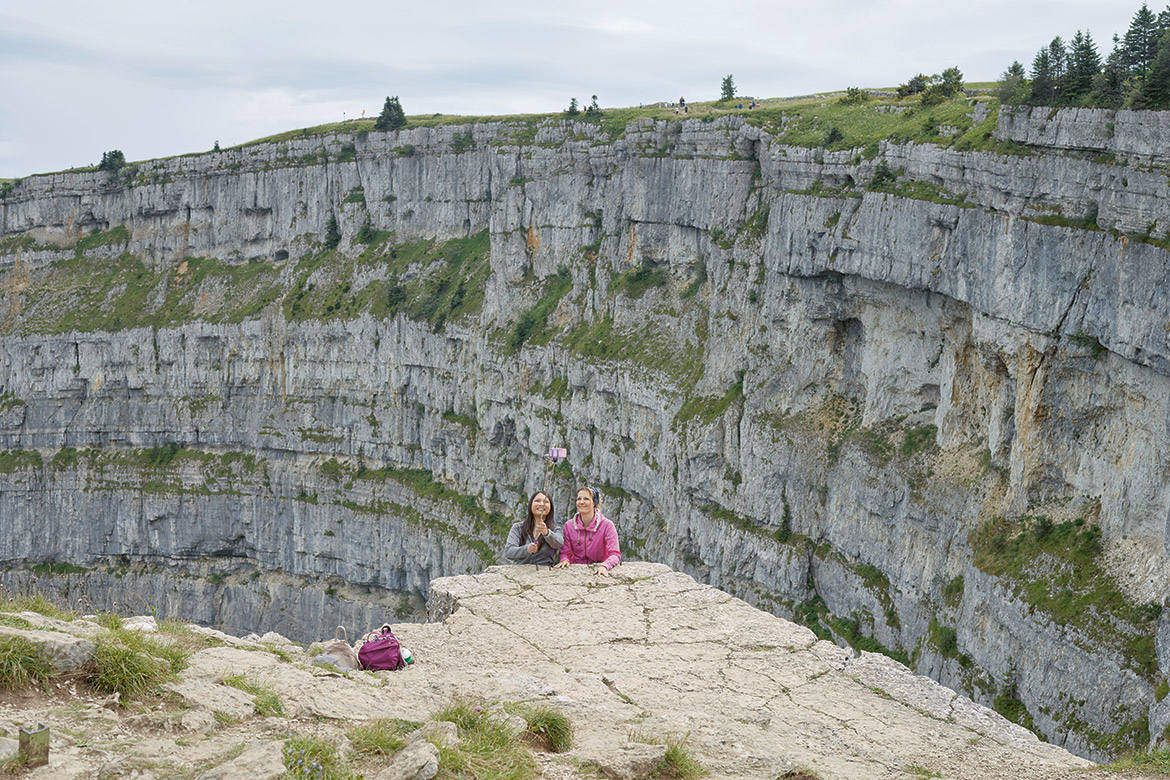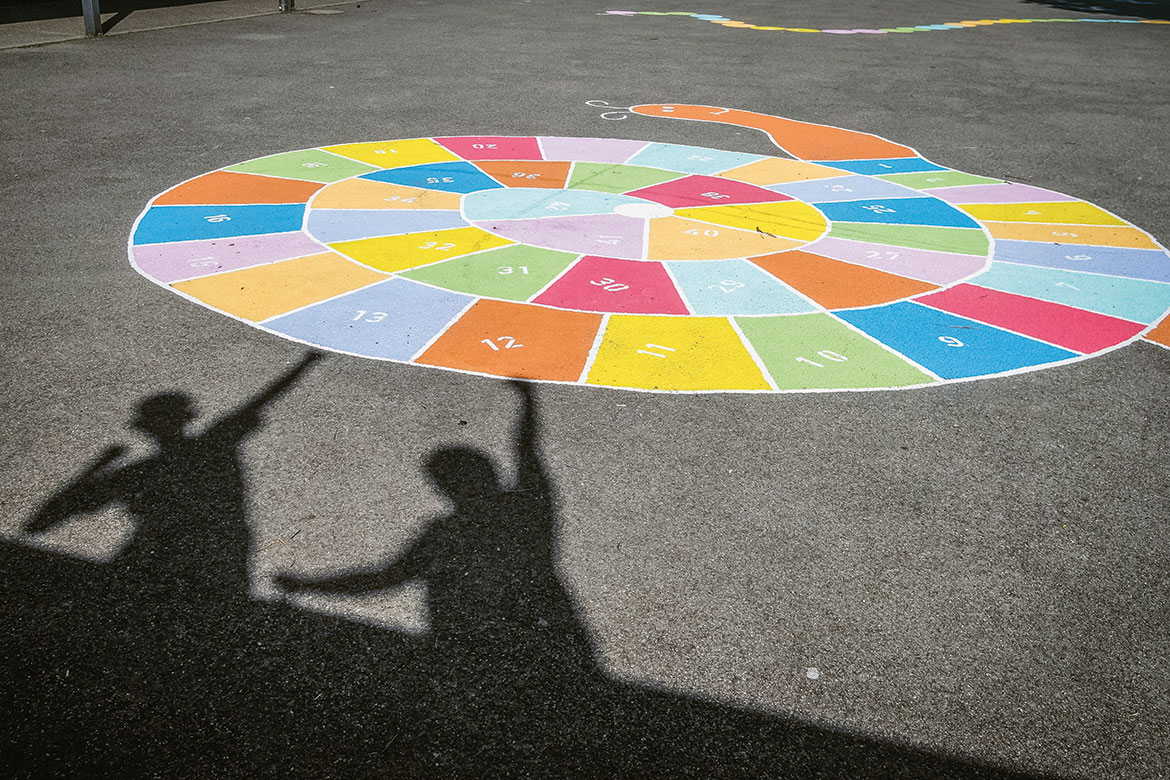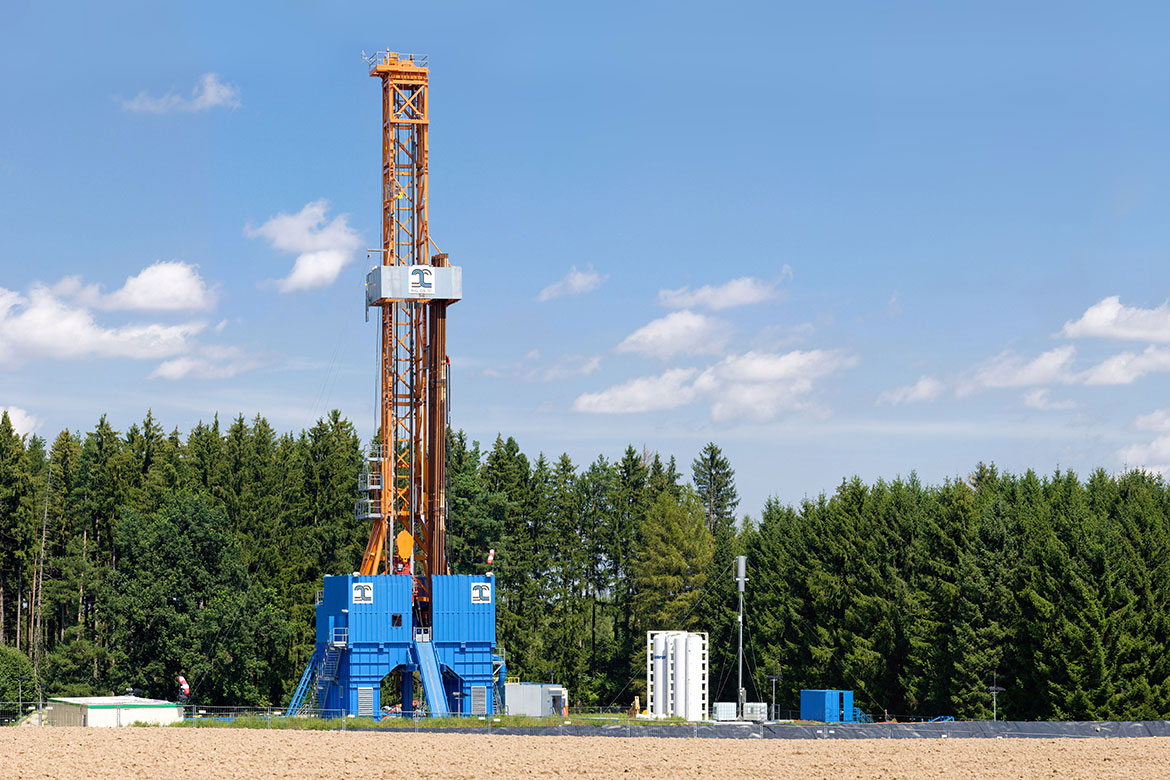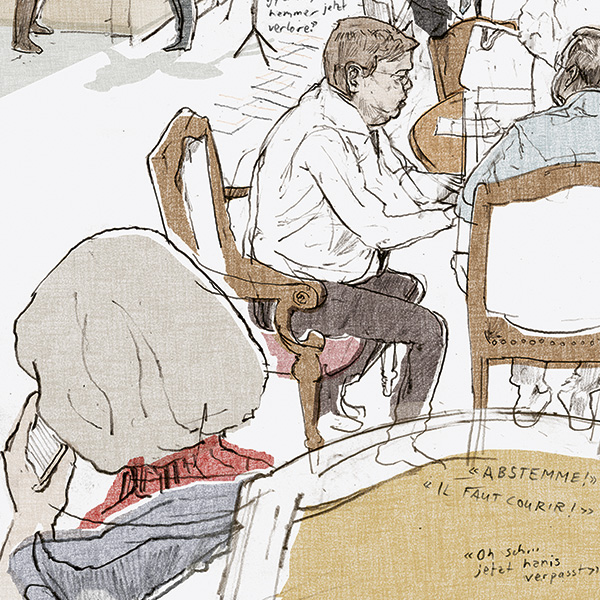Feature: Getting creative against climate change
Editorial: Giving the Earth a makeover will require an innovative spirit
Horizons has been restyled. The Earth could do with a revamp, too, if we’re going to combat the climate crisis, writes Judith Hochstrasser, the joint Editor-in-Chief of Horizons.
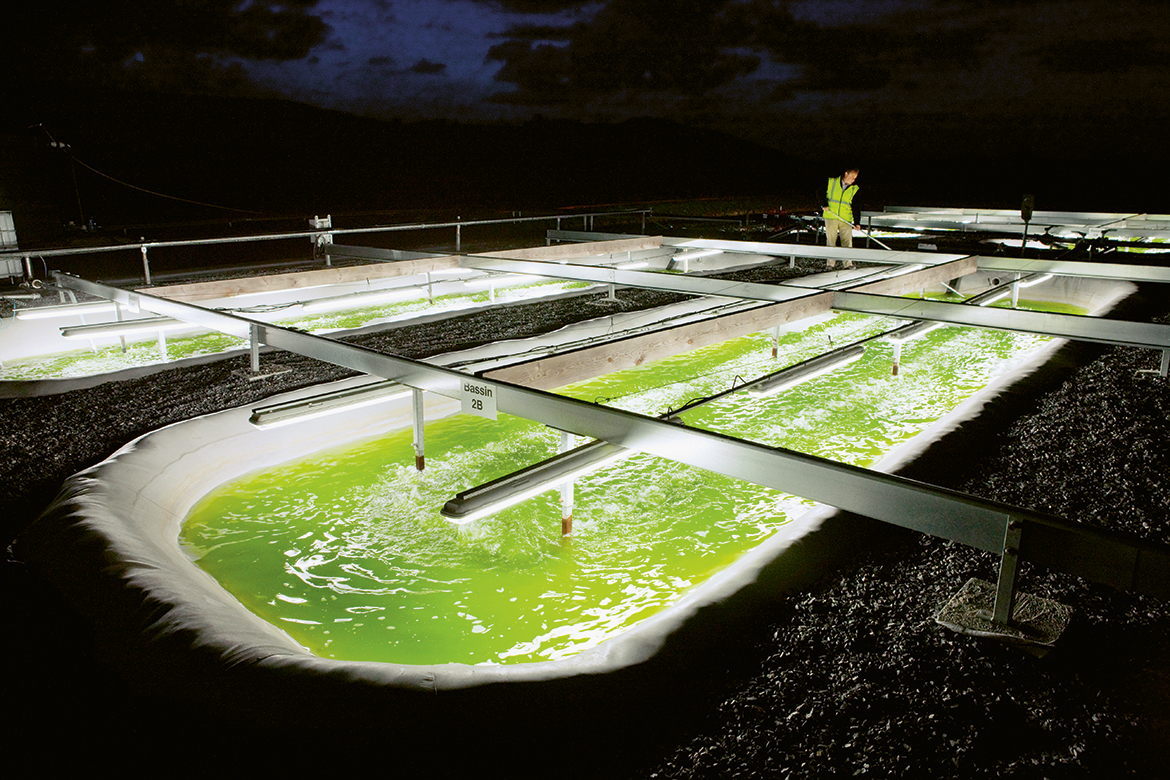
The microalgae (Chlorella vulgaris) in this basin produce renewable fuel and could help us to mitigate the climate catastrophe. Household waste is composted to produce methane gas that is burned to produce electricity. The resultant CO2 is pumped into the basin (the process shown here in the picture), which in turn promotes the growth of the algae. Ultimately, the algae too are harvested and turned into biofuel. Photo: Pascal Goetgheluck
This is a special issue of Horizons that you see before you. When a magazine undergoes a revamp, it usually takes a while to get used to it. So, take your time and browse, for example, through our news from the world of science and scholarship in the column ‘In brief’. Or have a look at our report from a barn full of mice. Either way, you’ll be able to feel reassured that one thing hasn’t changed in the course of our re-styling: our endeavour to provide high-quality reporting on research issues.
A relaunch like this requires a lot of planning and just as much flexibility from everyone involved, whether editors, graphic designers, translators, proof-readers, printers or web-publishers. In the midst of our preparations for this new-look Horizons, the novel coronavirus entered onto the world’s stage. When the Swiss Federal Council declared its emergency measures on 13 March 2020, our journalists and photographers were already out in the field. We were worried about the fate of several articles, especially about our main report that needed the on-the-spot presence of our journalist. This column is intended to be at the heart of the revamped Horizons. The fact that this particular article has still seen the light of day is not least thanks to the quick reactions of our image editors and the author, and to the openness of the researchers whose work we describe. This first, new-look Horizons is a culmination of extraordinary efforts.
But extraordinary circumstances demand extraordinary measures. And this is also true of global warming – a catastrophe that has been long predicted, which is why it’s our focus in this issue. If we are going to alleviate the consequences of this catastrophe, careful planning and much flexibility will be needed too – though naturally far more than it takes just to relaunch a magazine. All those involved will have to make exceptional efforts to find solutions: politicians, businesses, scientists and society as a whole. A complex interaction of new laws, new technologies and altered behaviour might provide the answers. But it will also take a lot of getting used to. Let’s hope that the innovative spirit of humankind will succeed in giving the Earth the extreme ‘makeover’ that it needs!

